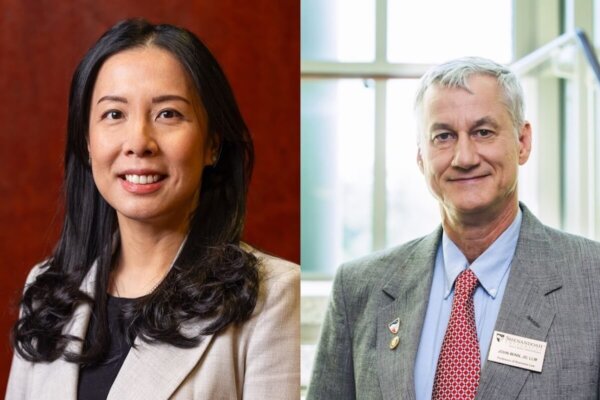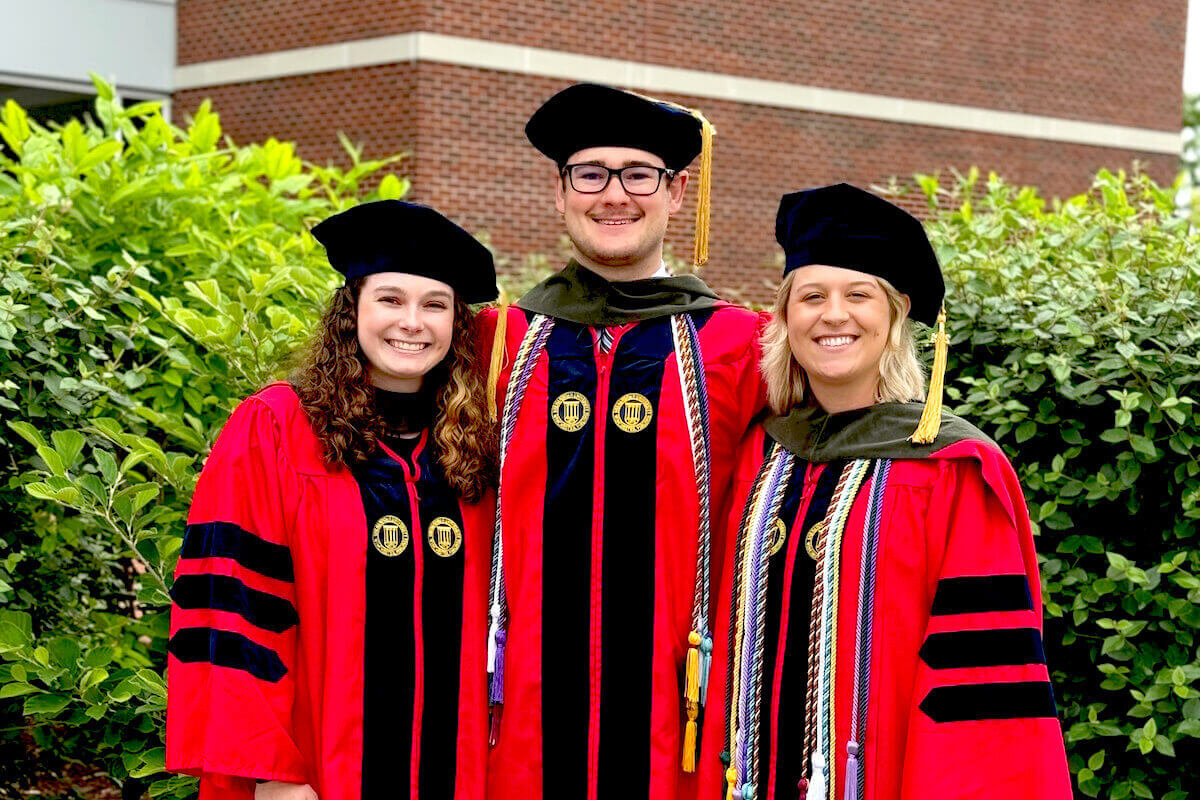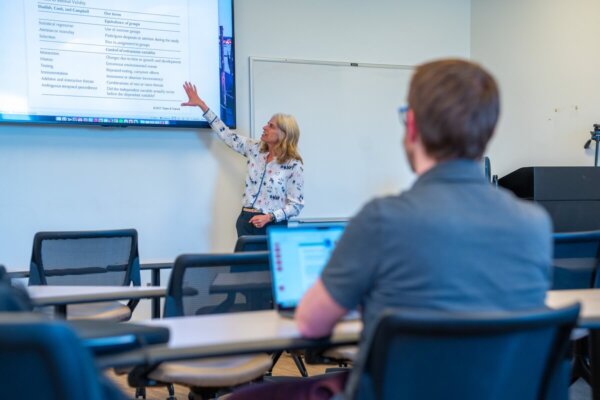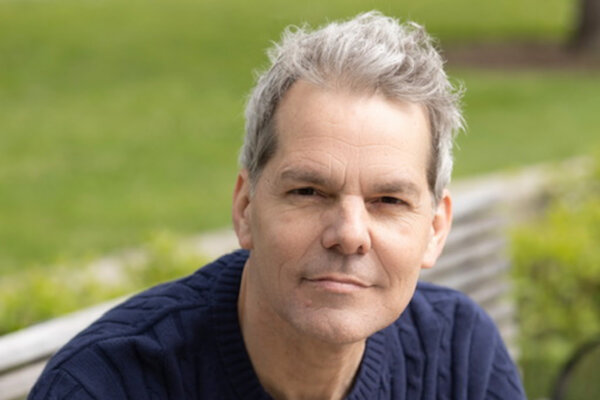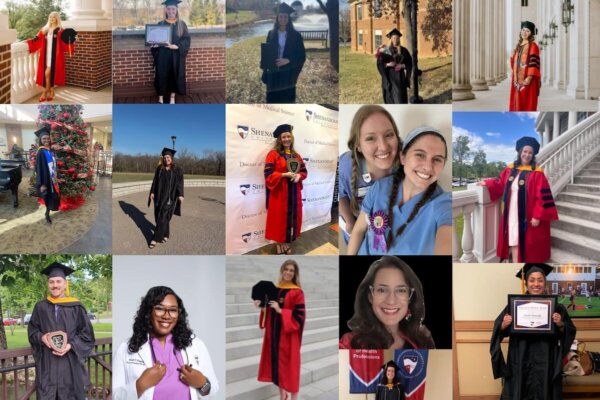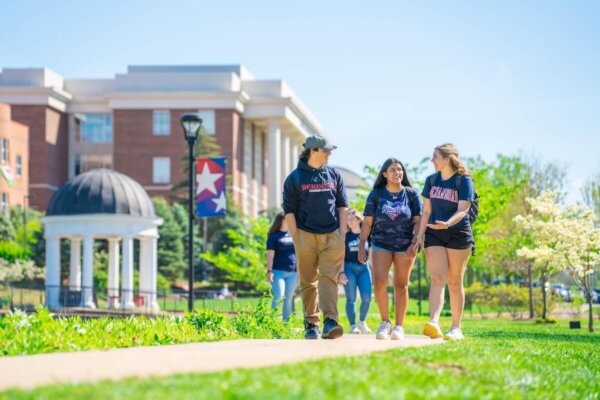Learning About Civil Discourse In Higher Education
Shenandoah Partners With Muslim-Majority Countries To Exchange Ideas
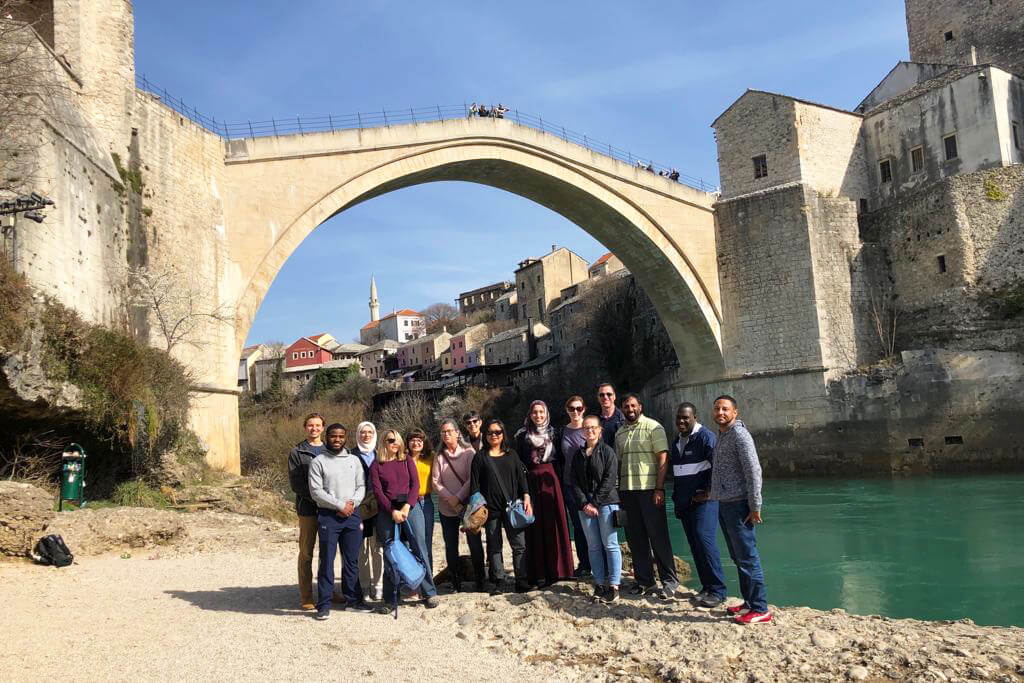
Shenandoah University recently partnered with Bridgewater College and two universities in Muslim-majority countries to learn how to provide better opportunities for civil discourse within higher education.
The Barzinji Project
The Barzinji Project is an initiative funded by the friends and family of Jamal Barzinji, who was a Muslim scholar with a passion for higher education. The Barzinji Project focuses on best practices in higher education, and this year’s specific focus was the topic of civil discourse. Delegates traveled across the globe to visit each partner school and exchange best practices, explore the idea of civil discourse, and discover how it is facilitated on each campus.
Barzinji Project Partner Schools
- Shenandoah University | Winchester, Virginia
- Bridgewater College | Bridgewater, Virginia
- University of Sarajevo | Sarajevo, Bosnia
- International Islamic University Malaysia (IIUM) | Selangor, Malaysia
Shenandoah University Barzinji Project Delegates
- Ting-Yu Chen, M.F.A | Professor of Dance
- Catherine Shiffman, Ph.D | Associate Professor and Chair of the Department of Leadership Studies
- Emily Hollins | Registrar
- J Santiago | Director of Residence Life
- James Turner ’20 | President of the Student Government Association, Business Administration Student
- Julia Havron | Physician Assistant Studies Student
- Younus Mirza, Ph.D. | Scholar-in-Residence and Director of the Barzinji Project
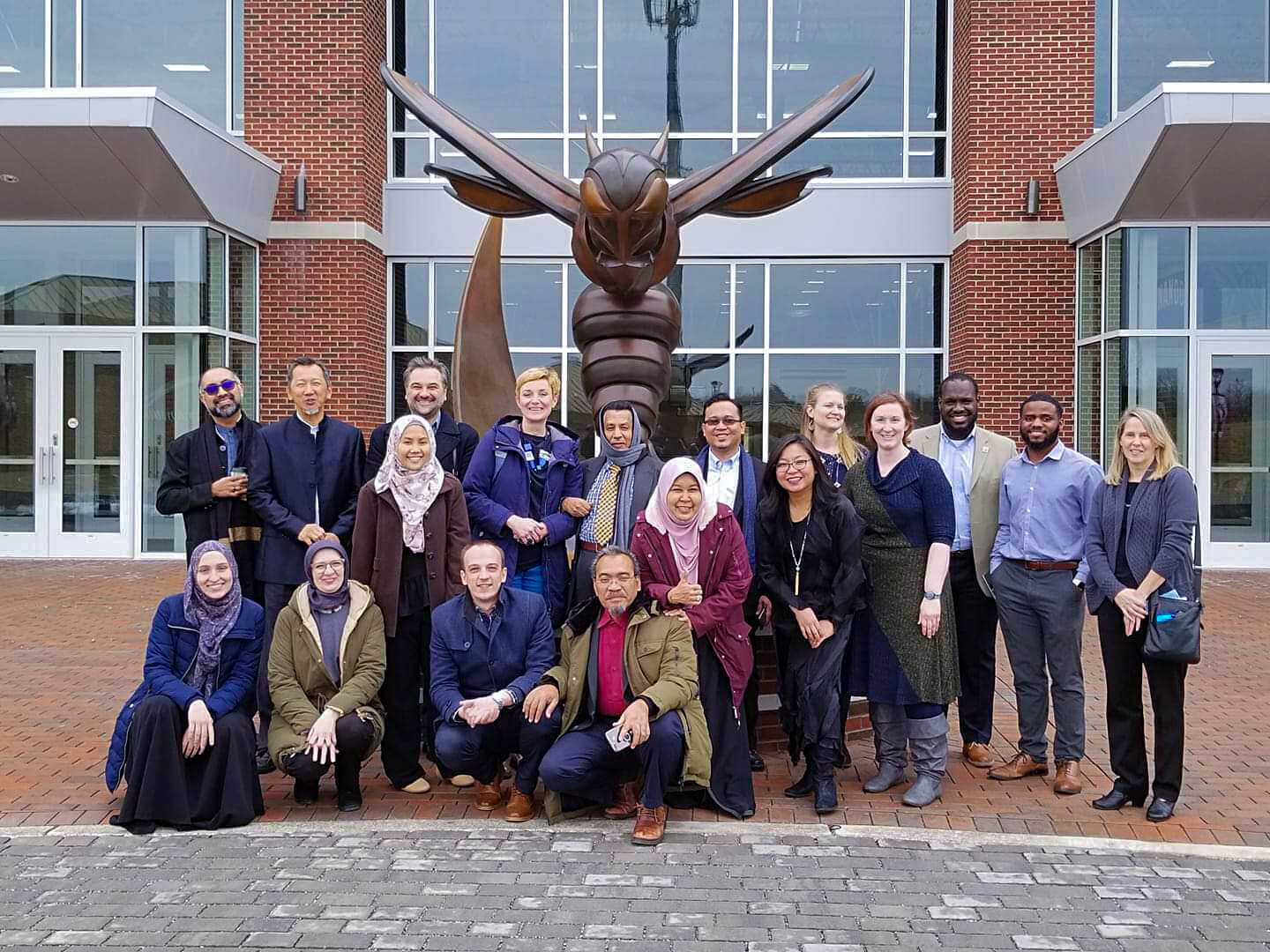
Emily Hollins’ Reflection on The Barzinji Project
I recently returned from 11 days traveling to two Muslim-majority countries to experience life in a different culture and to learn about higher education practices. We spent five days each in Bosnia and Malaysia to learn how their schools operate and how they provide space for civil discourse. Each of the 12 US delegates met with their counterpart to see the differences and similarities in their jobs. That was a big theme of the trip — what is different, but also the same. Many things were done in various ways at each school to achieve the same result.
The Barzinji Project’s Visit in Bosnia
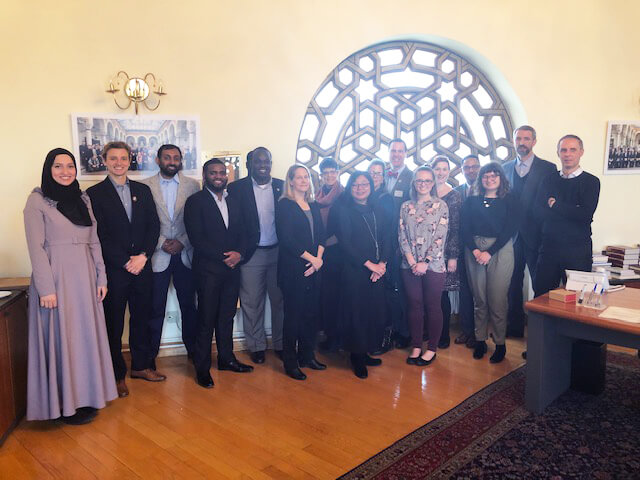
We started in Bosnia at the University of Sarajevo, and specifically at the Faculty for Islamic Studies (a college within their university). We were warmly greeted by faculty and staff, some of whom we had met previously during the delegates’ visit to Virginia in February of this year. It was nice to reconnect with some friends and to meet new members of the university. We learned a great deal about the history of Bosnia and its continuous struggles from the war in the 1990s. That was a continuous thread through the entire visit. The war is still very recent, and the atrocities and lack of closure are evident in how everyone regards civil discourse. There are complicated political situations in Bosnia, which do not allow for completely free speech. Saying the wrong thing can get you put on a list, so people are careful about what they say and to whom.
We had the opportunity to visit with the political science faculty and to hear from their professors about what they are doing in terms of civil discourse. Students have a safe space at the university to discuss their views, but that does not extend fully to the outside. In Sarajevo, we saw many remnants of the sad past, including grenade holes in buildings, monuments to the dead, and “Sarajevo Roses,” which are shell holes in the street that have been painted red to remind people of the siege that lasted nearly four years.
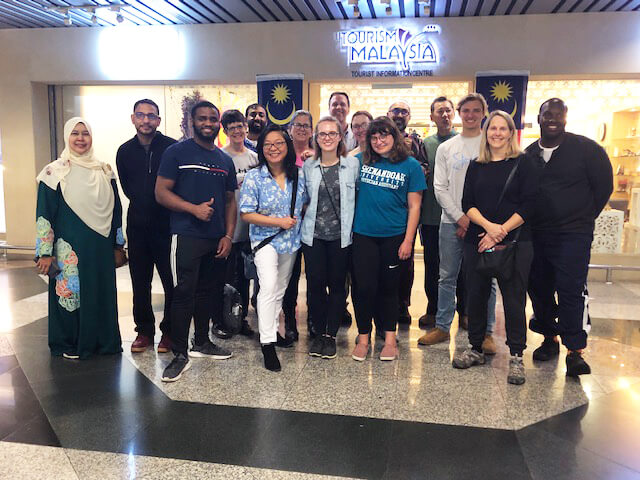
We were also able to visit the Tunnel of Hope, which was built during the siege to allow food and supplies to transfer in and out of Sarajevo under the airport runway. It was eerie to walk through the tunnel, stooped over, and to think of the people who were so desperate that this was their only way to get the items that they needed to live.
One of the things that I found interesting was that most of the delegates and others that we interacted with actually fought in or lived through the war and siege. We were able to talk with people and receive a firsthand account of how it was to live through those times.
The Barzinji Project’s Visit in Malaysia
Our next stop was Malaysia, where we visited the International Islamic University Malaysia (IIUM) just outside of Kuala Lumpur. This school is very large, and their mission is the “Islamization of education.” This was a very strong theme throughout their presentations. They are attempting to link all learning and education to the Quran and its principles, and they are staying on message.
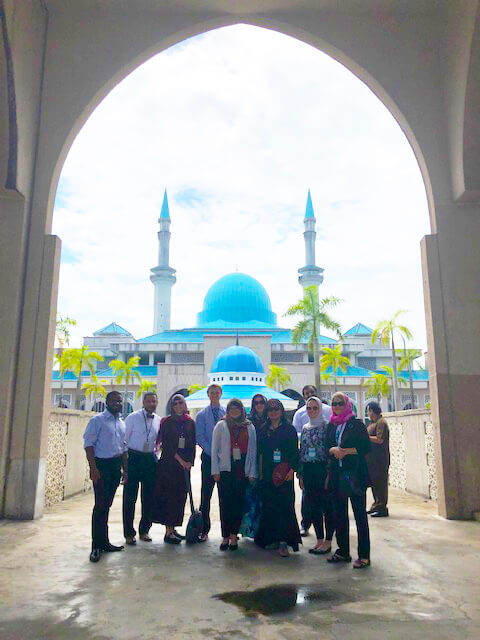
I thought this was an interesting approach, and they were very transparent about their mission. We were able to attend courses at the university and meet with students, which was a great experience. Students were using Quran apps to search for information that supported their learning and were using principles of Islamic thinking to guide their projects. I found their commitment to their mission very impressive, and it seemed to be garnering positive results. During one of the breaks, the Malaysian delegates provided us with a sampling of exotic fruits, including the famously stinky durian fruit. Several of our group tried the durian (which has the consistency of cheese) with mixed results.
This experience was such a fantastic way to learn about other schools and to be immersed in a different setting. We were able to get a clear picture of the two universities and the geographic and cultural surroundings that shape them. As our world becomes more divided with people talking but not listening to the other side, this project is critical to learn from others and to achieve a better understanding of different points of view.
Datuk Seri Anwar Ibrahim Opened The Center for Islam in the Contemporary World
During the Barzinji Project’s Shenandoah visit, we held the grand opening of SU’s Center for Islam in the Contemporary World. The center is based at the Scholar Plaza, Loudoun. CICW at Shenandoah University is an independent, privately funded, academic center engaged in research, teaching, training, and outreach on issues related to Islam and Muslims in contemporary contexts. CICW utilizes inter-disciplinary and trans-disciplinary approaches from diverse academic specializations. It engages in inter-faith education and outreach, connecting Shenandoah University to local, national, and global Muslim communities.
The keynote speaker at the event was Datuk Seri Anwar Ibrahim — chairman of the center’s board, president of the People’s Justice Party of Malaysia, & leader of the Pakatan Harapan Coalition! He flew from Malaysia to speak to event attendees.
